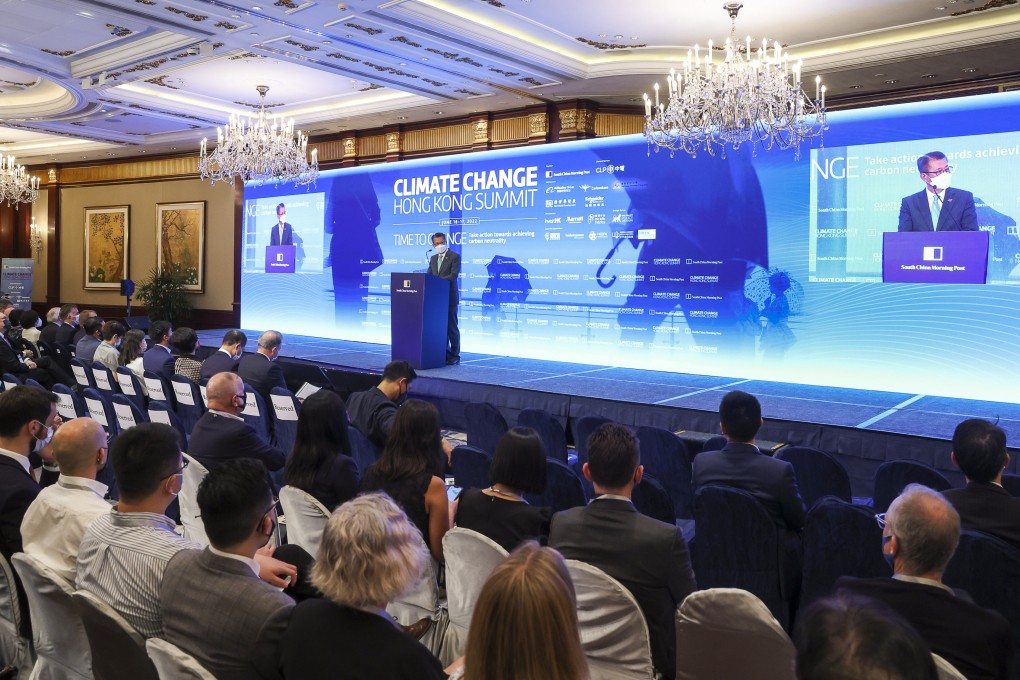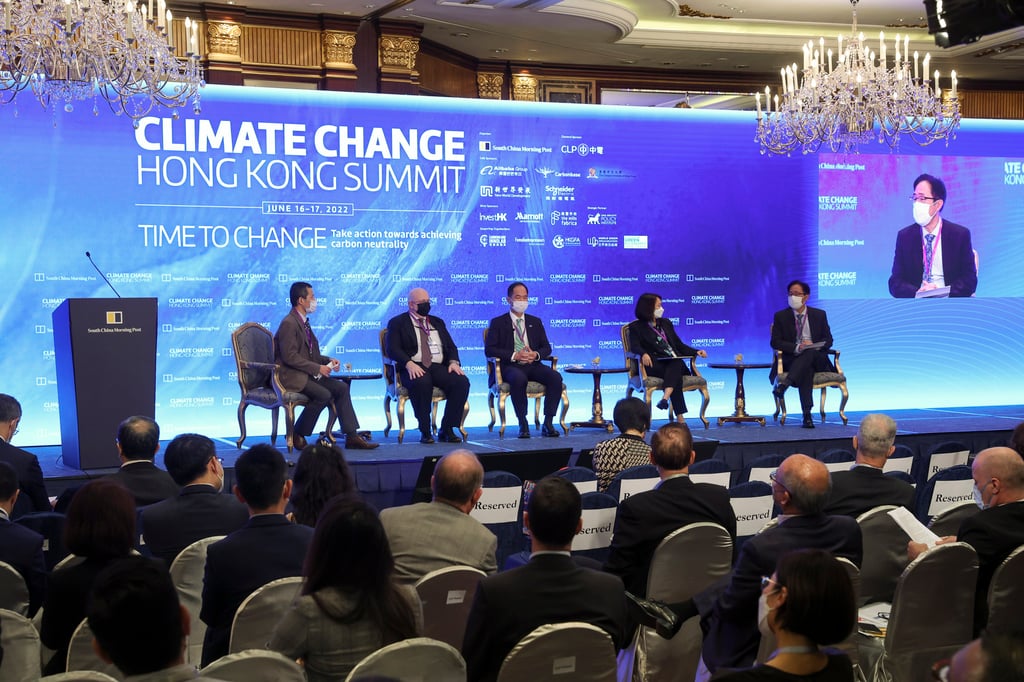Climate Change: Greater Bay Area holds the key to Hong Kong’s climate goals, delegates say at SCMP’s inaugural environmental summit
- Because various provincial and municipal governments in China are competing for low carbon energy resources, we need the Hong Kong government’s support, CLP executive says
- City can also take advantage of the engineering and project management capabilities of mainland companies to reduce costs

Hong Kong’s government and businesses should proactively engage in dialogue with their counterparts in mainland China to ensure the city’s access to secure, clean and affordable energy to meet its 2050 carbon-neutrality goal, experts said.
Leadership and coordination by the government would be vital to mediate the competing needs for these resources between Hong Kong and mainland China, where carbon emissions have been pledged to peak before 2030, en route to net-zero emissions by 2060.
“The fact that [various] provincial and municipal governments [in Guangdong] are competing for low carbon energy resources in the region … is something where we need the Hong Kong government’s support,” said Chiang Tung-keung, managing director of CLP Power Hong Kong, the city’s biggest power supplier. “If we elevate this to a government-to-government discussion, and if we can have more support from the central government, that will be much easier for Hong Kong and it will take a shorter time for [us] to secure these resources.”

Besides resources, the city can also take advantage of the engineering and project management capabilities of mainland China’s companies to reduce costs.